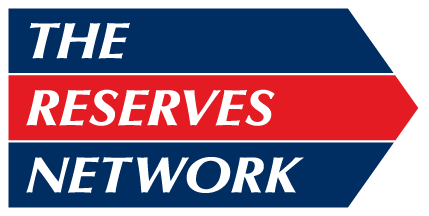What is Upskilling and Why Do You Need to Do it Now?
Upskilling is an impressive workplace trend that focuses on continuous learning. It takes place when companies invest in training programs that help employees develop new abilities and minimize skill gaps.
There are many reasons why you should practice upskilling in your business. Here are four of our favorites.
The Shifting Market
“The nature of hiring, training, and working in our culture is shifting,” said Elise Spaulding, director of learning and performance at The Reserves Network. “With these employment market changes, businesses need to ensure they don’t lose good employees to their competitors. Upskilling is a great way to invest in your employees – not only does it help your business, but it shows your interest in contributing to the career and interests of your staff.”
In many industries, automation has taken away job opportunities, while the very need to keep machines running smoothly has added them back.
Upskilling is important because your company needs to find and develop people with strong technical and business skills. Otherwise, you won’t be able to compete.
Growing Employee Expectations
As we tell many of the hiring managers interested in working with our professional recruiters, modern employees expect more from a job than guaranteed pay and fair workplace treatment. Employees want affordable healthcare, paid holidays, a positive atmosphere, and—perhaps more than anything else—professional training.
Indeed, a recent survey showed a whopping 91 percent of young employees cited professional training as an important factor when choosing an employer. Older employees share these expectations, because professionals of all ages realize they need in-depth training to stay relevant.
Training and Engagement
Upskilling has the potential to boost morale, employee satisfaction and engagement in the workplace. Did you know that thousands of employees feel disengaged at work? These employees are less productive, wasting time and company money, instead of making a positive impact.
When your employees learn new skills, they feel better equipped to earn promotions, handle their current responsibilities successfully, and assist in training new hires. That’s a win for everyone involved.
An Improved Bottom Line
There’s no denying upskilling programs are expensive. However, your company will see a strong return on investment. Training is easier and cheaper than manually addressing problems in the workplace. Plus, employees are more likely to stay in a position with free, provided training. This means less turnover and lower hiring costs. And, as we mentioned before, the boosted engagement that comes with upskilling means more productivity and, therefore, a stronger bottom line.
Upskilling Opportunities
There are several ways to employ upskilling in your training process, including:
- Mentoring and shadowing. Use the experts within your company to spread knowledge. Your mentors will master important leadership skills, and your new hires will learn from the best.
- Virtual or online learning. These learning opportunities allow your employees to train from home, rather than forcing everyone to gather on-site for training sessions.
- Microlearning. This form of learning involves boosting your employees’ understanding of a particular program or topic. You might assign a series of short videos to watch, with an exercise or quiz to demonstrate understanding.
- Lunch-and-learn sessions. During these sessions, you can provide lunch for your employees and invite an expert from outside the company to share expertise on a particular subject.
Contact Our Team of Experts to Learn More
Upskilling is even more effective when you have the right employees for the job. Contact our experienced team at The Reserves Network for assistance finding the right candidates for your company!



